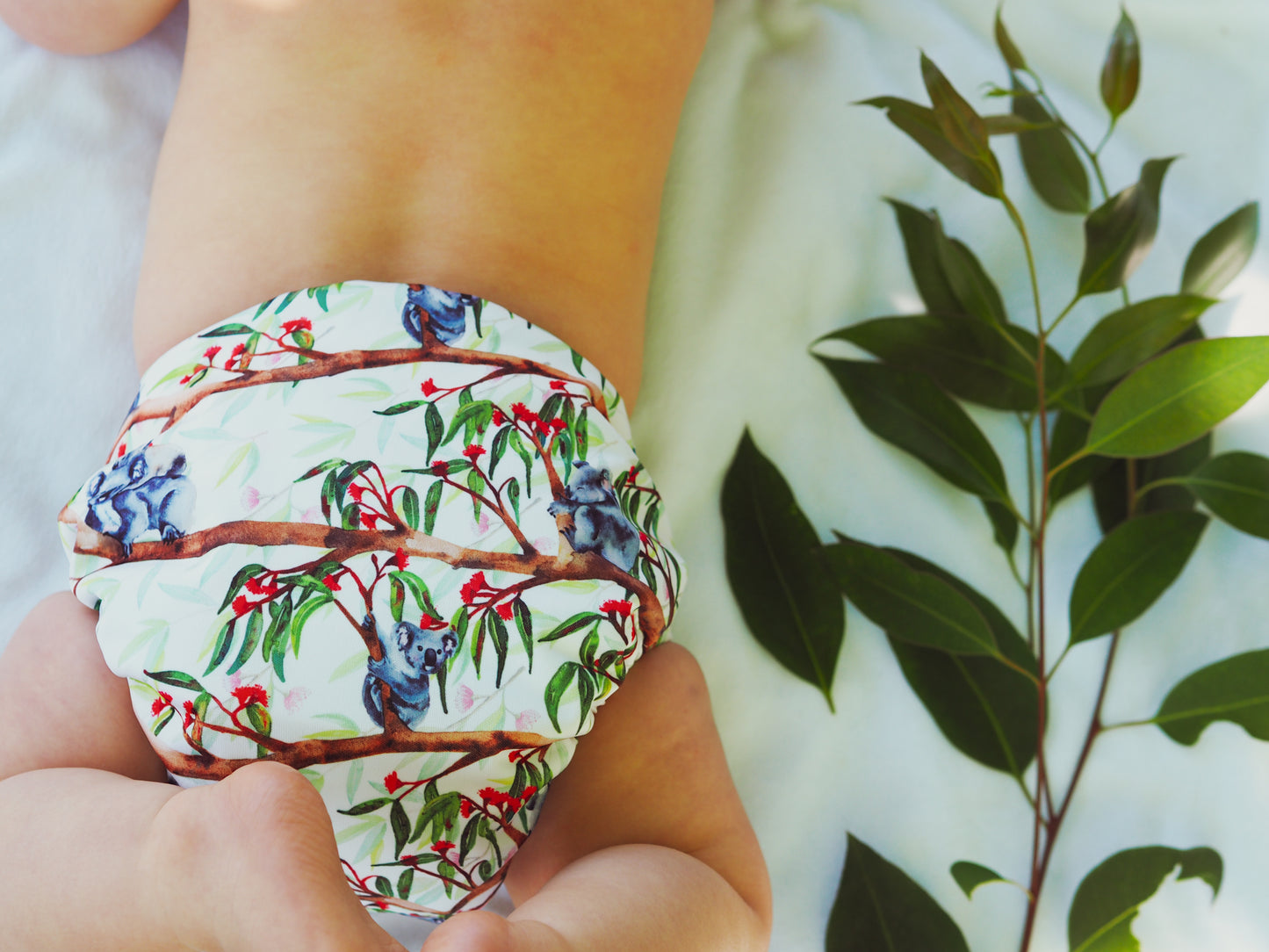Welcoming a baby into your family is an exciting time, but it can also come with an increased environmental footprint. From nappies to baby gear, raising a child has a significant impact on the environment. However, with a few mindful changes, you can reduce your environmental impact and teach your little one the importance of sustainability from day one.
In this blog, we’ll explore practical tips on how to be environmentally friendly while caring for a new baby.
1. Opt for Reusable Nappies
Disposable nappies are one of the biggest contributors to waste when raising a baby. Traditional disposable diapers can take up to 500 years to decompose, making them an environmental burden.
Consider switching to cloth nappies. They are:
- Washable and can be used multiple times.
- Made from natural fabrics, which are better for your baby’s skin.
- Cost-effective in the long run despite a higher upfront investment.
For families that prefer the convenience of disposables, eco-friendly nappy brands offer biodegradable or compostable options.
2. Breastfeed or Use Eco-Friendly Formula Options
Breastfeeding is not only beneficial for your baby’s health but also for the environment. It eliminates the need for formula packaging, production, and transportation, reducing your carbon footprint.
If breastfeeding is not an option, look for organic and sustainably-sourced formula brands. Additionally, opt for glass bottles instead of plastic, as they are more durable and free from harmful chemicals like BPA.
3. Choose Sustainable Baby Clothing
Babies grow incredibly fast, and it's tempting to buy a lot of new clothes. However, you can be more eco-friendly by:
- Purchasing organic cotton or bamboo clothing, which are grown without harmful pesticides and are biodegradable.
- Buying second-hand baby clothes from thrift stores or online marketplaces.
- Swapping clothes with friends or family who have children.
Another bonus of second-hand clothing is that it reduces the demand for new clothes, which lowers the environmental cost of production and transportation.
4. Use Eco-Friendly Baby Products
From baby shampoo to lotions, many conventional baby products contain harmful chemicals that can negatively affect both your baby and the environment. Opt for:
- Organic and natural baby products, which are free from harmful additives.
- Brands that use sustainable packaging, such as those made from recycled materials or that are refillable.
- DIY baby products, such as homemade wipes, to reduce packaging waste and ensure only natural ingredients touch your baby’s skin.
5. Buy Second-Hand Baby Gear
Baby gear, such as cribs, strollers, and toys, are often used for a short period of time. Instead of buying new, consider:
- Borrowing from friends and family who no longer need their baby items.
- Buying from second-hand stores or online platforms like Facebook Marketplace or eBay.
- Joining a toy-sharing program, where you can borrow toys and return them when your baby outgrows them.
Reusing baby gear not only reduces waste but also saves you money.
6. Limit Plastic Toys
Many baby toys are made from plastic, which takes hundreds of years to decompose and can release harmful chemicals. Choose wooden or fabric toys, which are made from sustainable materials and are biodegradable. Additionally:
- Look for toys made from recycled plastic.
- Limit the number of toys you buy and focus on quality over quantity.
- Consider toy swaps with other parents to keep things fresh without buying new toys.
7. Make Homemade Baby Food
Instead of buying pre-packaged baby food, consider making your own. Homemade baby food is:
- Healthier, as you control the ingredients.
- Less wasteful, as it reduces the packaging associated with store-bought baby food.
- Cheaper in the long run.
Invest in a baby food blender and reusable storage containers, such as glass jars or silicone pouches, to make the process easier and more sustainable.
8. Practice Minimalism
One of the easiest ways to be eco-friendly with a new baby is by adopting a minimalist approach. Instead of accumulating a lot of baby products, focus on what is truly essential. A minimalist baby registry may include:
- A few high-quality outfits.
- Reusable diapering essentials.
- Eco-friendly feeding supplies (like a glass bottle and cloth bibs).
- Second-hand baby furniture.
Minimalism not only reduces waste but also helps create a clutter-free, serene environment for your baby to grow in.
9. Choose Eco-Friendly Baby Furniture
When choosing furniture for your baby’s nursery, look for sustainable options made from:
- Certified organic wood or other renewable materials.
- Non-toxic finishes to protect your baby’s health.
Opt for furniture that can grow with your baby, such as convertible cribs that turn into toddler beds, to reduce the need for new furniture as your baby gets older.
10. Be Mindful of Water and Energy Usage
Raising a baby involves more laundry, baths, and household chores, which can increase your water and energy consumption. To reduce your impact:
- Wash clothes in cold water and air-dry them when possible.
- Install water-efficient showerheads and faucets.
- Use energy-efficient appliances to minimize your electricity usage.
Final Thoughts: Small Changes Make a Big Difference
Raising an environmentally friendly baby doesn’t mean sacrificing convenience or comfort. With a few thoughtful changes, you can reduce your family’s environmental impact and set a positive example for your child. By opting for sustainable products, reusing baby items, and minimizing waste, you’re not only protecting the planet but also ensuring a greener future for your baby.
Remember, it’s not about being perfect—it’s about making small, sustainable choices that align with your family’s lifestyle and values. Every little bit counts!

